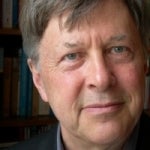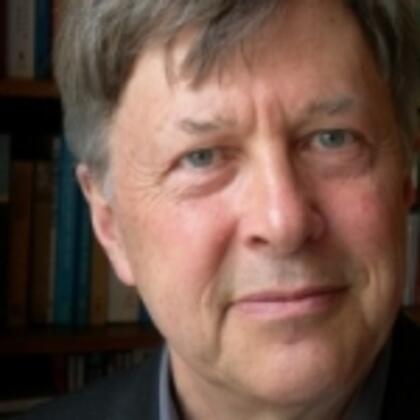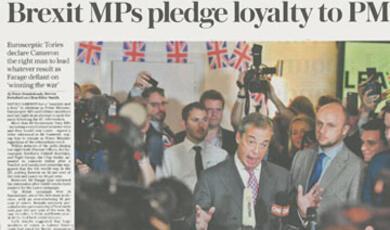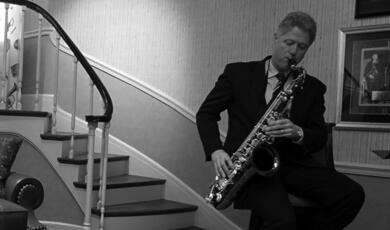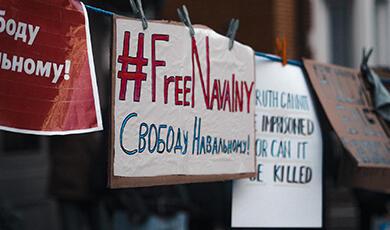How long was the twentieth century?
Share
- Details
- Transcript
- Audio
- Downloads
- Extra Reading
Political ideologies in Britain from the Russian Revolution to the fall of the Berlin Wall in 1989, the 'short' Twentieth Century. With the end of this 'short' twentieth century the ideological certainties fell away, and an ideological map of clear and comprehensive packages - left, right, communist, fascist - was replaced by ideological pick and mix.
Download Transcript
HOW LONG WAS THE TWENTIETH CENTURY?
Professor Rodney Barker
Political ideologies in Britain from the Russian Revolution to the fall of the Berlin Wall, and from the rise of the modern state to the war on terror. Not all dates are significant. The Russian Revolution of 1917 and the collapse of East European and Russian communist regimes and the end of the Cold War in1989 and were turning points in a way that 1900 and 2000 were not. The years between these two events are sometimes called the "short" Twentieth Century. It was a period marked by a clear distinction between left and right, capitalism and communism, liberty and authority. With the end of this "short twentieth century" the ideological certainties fell away, and an ideological map of clear and comprehensive packages - left, right, communist, fascist - was shredded and replaced by ideological pick and mix. But there was "long" Twentieth Century as well, and many of its issues are still with us.
_____________________________________________________________________
* 1 PICTURE
* 2 PICTURE
1. People celebrated the new millennium and the end of the twentieth century on New Year's Eve 1999.
But how long was the Twentieth Century
That may seem like a silly question, but there was a fair bit of argument at the time of the millennium about when the 21st century started and when the 20th ended, whether 2000 should be treated as the first of the new or the last of the old.
That may have been a quibbling debate, but there is another, more sensible one, because dates are only numbers if nothing much happens on the day to which they refer.
Real watersheds don't usually oblige by fitting neatly onto a calendar.
So once you ask what the significant dates are, you get rather a lot of answers. If you divide history into significant periods - Middle Ages, Renaissance, Reformation, the Victorian Age, those periods don't fit neatly into the beginnings and end of centuries. But historians have been a bit reluctant to give up on centuries altogether, so have started talking not just of chronological centuries, but of historical ones.
So historians talk, for instance, of the "Short Twentieth Century".
*3 PICTURE
The short twentieth century started in 1917
*4 PICTURE
And it ended well before the millennium.
*5 PICTURE
Collapse of Eastern European and Russian communist government, fall of Berlin Wall, end of the Cold War,
(The end of ideology, the end of history?)
If the "short Twentieth Century; is a significant period, why is it" What are its characteristics and what marks it off from what came before and what comes afterwards?
The characteristic divisions of the Short Twentieth Century were fairly simple, and set by these two events
And these two events set the boundaries of ideology as much as of any other aspect of political life.
2. So I'd better start with some kind of definition, since ideology, like democracy, fascism, freedom, terrorism and a lot of other words, can mean all kind of things.
`When I use a word,' Humpty Dumpty said, in rather a scornful tone, `it means just what I choose it to mean -- neither more nor less.'
`The question is,' said Alice, `whether you can make words mean so many different things.'
Well, we can't use words to mean anything at all, but there is a range of meanings, none of which is a "real" or "true" meaning, but some of which are sensible, and some just silly.
If I said that honesty was a form of pride, you might not agree with me, but you would understand what I was getting at. But if I said it was a form of vegetable, you'd know I was talking nonsense, indeed that I wasn't talking at all, just making meaningless noises.
Ideologies, what are they?
I've spoken about ideologies, but that's really only a short hand for all the things said and written, argued and debated over, by people: poets and preachers, philosophers and pamphleteers, hacks and historians.
Ideologies sounds better than ideas or theories, because those two words suggest something clearly worked out, and though people do use the word "ideology" in that way too, I'm going to be using it in a much looser way, to describe the various ideas, arguments, aspirations, aversions, theories, principles, justifications and meanings which cluster more or less together at a particular time and in a particular place.
I shall use the word "ideologies" to mean the stories people tell about the worlds they live in, the vices and virtues they detect there, and the hopes and expectations they have for change, transformation, or preserving things as they are.
In all of this there is both dynamism and incoherence, and a continual search for coherence and intellectual order, making the various bits and pieces fit, and continually changing the bits that are uncongenial so that a new balancing out is necessary
And whether or not there is a real social world out there independent of all the things people say, think, and do, the accounts of what that world is like differ hugely.
It's difficult enough if all that is being described is a single book: what did Marx "really mean" in Capital, what is Tolstoy's War and Peace essentially about? And when you get to collections of books such as the Bible, there are vast differences in accounts of good and evil, what are the important values by which we should live, what are the principal obligations imposed on us by moral law, amongst Christians all of whom cite the Bible as authority.
Its not surprising that when the evidence to be interpreted, and the source of authoritative interpretation, is not just one book, but the whole world, that there is disagreement on a huge scale.
Hayek/Strachey:
After the Second World War, in 1956, the social democrat John Strachey wrote a book entitled Contemporary Capitalism heralded the triumph of the equality of democracy over the inequality and privilege of capitalism
A few years before, in 1944, the economist and political writer F A Hayek described what he saw as The road to serfdom where governments in one way or another socialists, in its pursuit of equality necessarily and unavoidably imposed totalitarian control over society
Strachey and Hayek were telling their stories at more or less the same time, and allegedly about the same thing, but their accounts were completely different.
Bin Laden/Bush:
In January 2002 President George Bush of the United States spoke of an "an axis of evil, arming to threaten the peace of the world" against which his country and its allies must struggle.
Osama bin Laden, four years earlier said that the struggle of all good Muslims was against "the tyrants and the aggressors and the enemies of Allah".
"The truth is that the whole Muslim world is the victim of international terrorism, engineered by America at the United Nations. We are a nation whose sacred symbols have been looted and whose wealth and resources have been plundered."
It's not just an argument as to whether the glass is half full or half empty, but whether there is a glass at all
3. Ideology in the short twentieth century
Ideology is the way in which an understanding of the world is constructed and expressed
During the short twentieth century, from the Russian Revolution of 1917 to the collapse of Soviet and East European communist systems in 1989, the ideological battle lines were relatively clear, and the ideological map was a relatively simple of getting our ideological bearings:
i} capitalism versus socialism:
Ideologies are narratives, stories, both about what people hope for, and about what they oppose. They are stories about aspirations and about enemies
For the left during this time, the enemy was capitalism, for the right either socialism or communism.
ii} The terrain which the map described was one class politics and the politics of economic control.
Class politics was not just a part of the ideology of one side: it provided the whole framework within which ideologies were expressed. And as such, it marginalised other ways of thinking about the world and its politics.
Religion, nationalism, and "non-ideological" politics were taken to be not serious, or only a reflection of something else, or the tip of a rather different iceberg.
Both side sustained this view, Marx and the liberal economists who argued for private property and markets. "Mere opinion" was to be interpreted in terms of its relation to "real" interests, and "practical" concerns which were material and economic. The advocates of the market and its opponents were equally materialist.
Political ideology in Britain between these two events was carried out on a map of which these were the primary grid lines. And throughout that short Twentieth Century, ideology was haunted by two ghosts: Marx, and Nineteenth Century economic liberalism. Haunted rather than dominated.
4. Why did the Short Twentieth Century with its relatively straight forward ideological map, come to an end?
To answer that it will help to go back a little way, in fact to go back to 312 AD
*6 PICTURE
*7 PICTURE
The Constantine syndrome: in 312 Constantine defeated his rival at the Battle of the Milvian Bridge, with Christian symbols on the shields of his soldiers
Going back to Weber, we can take a lesson from his idea of elective affinity, which is a theoretical statement of the Constantine syndrome.
There is no rigid division between "ideas" and "action". Any human action has an ideological dimension. But the ideological aspect is not the only one or rather, what looks like "pure" ideology - speaking, books - is not all there is to it. Formal and informal institutions are a form of regular, ideological justification and explanation in action. The Constantine relationship draws attention the fact that people constantly seek for coherence between all the various forms of action in which they engage, and the fact that each aspect gains strength from the others.
So Constantine's alliance with the Christian Church is matched by thedisappearance of a church, a political church, the communist party of the soviet union and its surrounding state, between 1989 and 1991. Each dimension strengthens the other, and the collapse of Eastern European regimes was entangled with a collapse of the ideologies associated with them.
Marx disappears from the intellectual curriculum. Christianity did not advance in the world after 312 solely because it had become the official religion of the Roman empire, anymore than the empire continued on its remarkably long life simply because it had adopted Christianity. But the two sustained each other.
But there was more to it than that. The collapse of communism and the evaporation of Marx led to the evaporation of his opponents. This wasn't at all what Marx had had in mind when he wrote about the end of class society, where the abolition of the capitalist class would involve the abolition of the proletariat - but it was ironically similar. Just as the abolition of the bourgeoisie necessarily involved the abolition of its antagonist the proletariat, so the abolition of one side of the great Twentieth century divide, involved the abolition of the other.
Think of kites and strings.
5. But dates are only labels, and if there was a short twentieth century, there was also a long one:
There may be debates about when the long twentieth century ended, or if it has, but we can start it around 1880, with a growing awareness of:
industrialisation,
class,
sectional poverty,
urbanisation,
a growing political community/democracy
and a growing state,
If centuries can start late, they can start early:
How do political thinkers respond?
Faced with an enlarged and enlarging political community, how do ideas which were developed in a different world, cope?
The arrival of the people as both citizens and human resources raised questions about both the condition of the people, and about the actions, powers, and role of the people in the life of the nation.
Urbanisation changes the relation of elites to the general population, and the perceptions of each. East ends and west ends, not just in London but in Glasgow and wherever the wind blows from the west.
Optimism & pessimism: Spencer, Webb,
Spencer writing in 1884 in The Man versus the State : new slavery emerging towards the end of the nineteenth century
Sidney Webb, writing at the same time in pamphlets and essays : sensible arrangements for the managing of common interests
Two very different takes on the same developments and changes, or two very different stories about what was going on.
The contours of the long twentieth century:
democracy versus authority:
Liberty versus control
Society versus the state
So whereas the central conflict of the short twentieth century was between socialism and capitalism, the central conflict of the long was between authority and liberty.
The problems of the long and the short twentieth centuries were different from one another, but they overlapped and intermeshed.
*8 PICTURE
Long 20th century
Elites/authority
Democracy/society/liberty
Short 20thcentury
Capitalism
conservatism
Liberalism
Socialism
communism
Socialism
AND WHERE ARE WE NOW?
The usefulness of 'isms' and of left and right
You'll notice that up until now I've avoided using these terms
They are flexible terms, whose meaning depends heavily on context:
French estates general
West European politics
But who is "left" in Soviet Russia?
Ideologies are not coherent theories, but dynamic clusters. But for much of the Twentieth Century, the clusters were consistent, and you could read of the whole from any part: someone would need to tell you only one thing for you to be able to read of the whole of the rest
The arrival of pick n' mix ideology
Fox hunting: Anne Widdicombe, Kate Hoeey
Invading Iraq: military and negotiated solutions
Religion and its role in public life
From property to persons.
So we now live in interesting times. There will be both breaks and continuities, fragmentation and recessive themes.
Over the next five lectures I will look at both where we have been in the short twentieth century, and where it looks as though we may be going in the uncertain twenty first.
© Professor Rodney Barker, Gresham College, 14 October 2008
This event was on Tue, 14 Oct 2008
Support Gresham
Gresham College has offered an outstanding education to the public free of charge for over 400 years. Today, Gresham plays an important role in fostering a love of learning and a greater understanding of ourselves and the world around us. Your donation will help to widen our reach and to broaden our audience, allowing more people to benefit from a high-quality education from some of the brightest minds.


 Login
Login
